This month’s State of the Thing, LibraryThing’s monthly newsletter of features, author interviews and various forms of bookish delight, should have made its way to your inbox by now. You can also read it online.
We had a whole host of author interviews this month:
 I talked to author Dava Sobel about her latest book, A More Perfect Heaven: How Copernicus Revolutionized the Cosmos, published by Walker & Company.
I talked to author Dava Sobel about her latest book, A More Perfect Heaven: How Copernicus Revolutionized the Cosmos, published by Walker & Company.
You’ve done something quite unconventional with this book, putting a two-act play right in the center. How did this idea come about?
My original idea was to write the play. Well into that process—after I’d written and re-written the play several times—my editor, George Gibson, suggested writing a book around the play. I had already accumulated a cache of background information through my research, and he urged me to put that to use. The process of writing the nonfiction narrative produced many good effects: I stopped worrying about what Copernicus might say to me for putting words in his mouth. Also I was able to re-write the play yet again, with a new-found freedom to let the characters rip.
What was it about the idea of a play that drew you to use a dramatic recreation, rather than some other method, to recreate the collaboration between Copernicus and Rheticus?
Since February 1973, when I first learned of their meeting, I have wanted to write a play that would imagine their conversation—how Rheticus convinced Copernicus to do what he’d avoided doing for a lifetime (i.e. publish his book). Everyone knows their meeting took place, but no one knows what they said to each other. The situation seemed ripe for imagination.
Read the rest of our interview with Dava Sobel.
 Our second interview this month was with Ken Jennings about Maphead: Charting the Wide, Weird World of Geography Wonks, published by Scribner.
Our second interview this month was with Ken Jennings about Maphead: Charting the Wide, Weird World of Geography Wonks, published by Scribner.
So what is it about maps, anyway? Why are so many people so fascinated by them?
Maps are an extremely elegant solution to one of the most difficult problems ever to face human beings: finding our way through a big, complicated world that we only see firsthand in tiny bits and pieces.
For a map geek, seeing a map of a territory is an empowering act, and maybe even an armchair adventure, if you can project yourself into the map and imagine yourself exploring its contours. But the same map that empowers one person can totally frustrate and confuse another—it’s a matter of how good our spatial and navigational senses are. The good news is that those are senses that can quickly be improved through practice, researchers now know.
If you could visit one of the weird/out-of-the-way places you highlight in the book, which would it be?
I was fascinated by what I read about Baarle-Hertog, a small town on the border between Belgium and the Netherlands. A series of crazy treaties and land swaps between two 12th-century dukes have led to a bizarrely baroque international border there. Twenty-something tiny little bits of Belgium sit smack in the middle of Dutch territory, and many of those have, in turn, even tinier bits of the Netherlands inside them. (The smallest such parcel is well under an acre—a tiny Dutch cow pasture in the middle of a Belgian housing development.) Many houses straddle the border, so residents choose their citizenship based on which side their front door faces, and have been known to move the front door every time tax laws change. When bars close early on the Dutch side of the border, owners can move their tables over to the Belgian side and keep serving.
Read the rest of our interview with Ken Jennings.
 I also interviewed Robert K. Massie about his new biography, Catherine the Great: Portrait of a Woman (Random House), a very popular Early Reviewers pick in September.
I also interviewed Robert K. Massie about his new biography, Catherine the Great: Portrait of a Woman (Random House), a very popular Early Reviewers pick in September.
Most of your books have dealt with Russian history in some way: how did you first become interested in the subject?
My interest in Russian history evolved from a circumstance in my own family. My first child, my son, Robert Massie Jr., was born with hemophilia. I had a history background from my studies at Yale and Oxford, and I knew a little bit—a very little bit—about the Tsarevich Alexis, the only son and heir to Nicholas II, the last tsar, or emperor, of Russia. Alexis had hemophilia, passed down to him through his mother, a grandaughter of Queen Victoria. This boy’s illness led to the involvement of Rasputin as a healer … and the terrible intertwined sequence of family and political events which led to the fall of the monarchy and the Russian Revolution. Nothing had ever been written about this family and these events from this perspective and I decided to do it. That was forty-seven years ago. My first book, Nicholas and Alexandra, was the result.
Tell us about the research process for this book: how long did it
take? Where did it take you?
Catherine the Great has taken me eight years to write. Over all the years, I have been to Russia twenty times, from the Baltic to the Black Sea to the Urals and Siberia.
Read the rest of our interview with Robert Massie.
 Last but not least (and very appropriately for this month, we thought), I talked with Hugh Nissenson about his new novel The Pilgrim, published this month by Sourcebooks Landmark.
Last but not least (and very appropriately for this month, we thought), I talked with Hugh Nissenson about his new novel The Pilgrim, published this month by Sourcebooks Landmark.
Your books are set in an impressive variety of time periods. What drew you to seventeenth-century England/New England?
Aside from a life-long passion for the language of Shakespeare and the King James translation of the Bible, I had no serious prior interest in the period. But some seven years ago, in that state of suspension which precedes the birth of a new novel, I took down from my bookshelf a dog-eared copy of Myths and Legends of New England, by Diana Ross McCain. I re-read a brief essay about the hanging of an Englishman by his fellow settlers at Wessagusset, which was an abortive early settlement near Plymouth in New England. The story stayed with me. I began reading about the Puritans in England and their creation in 1620 of the Plymouth colony. I discovered that the incident at Wessagusset really happened. The starving Englishman who was hanged had stolen some seed corn from local Indians who forced the settlers to execute him for his crime. I became fascinated by historic figures like Miles Standish and Governor Bradford, and fictional characters began accreting in my imagination as well. The novel was taking shape.
More specifically, how did you decide to make the Wessagusset settlement the centerpiece of your narrator’s experience in Massachusetts?
I saw the Wessagusset hanging as a commentary on one of our nation’s foundation myths. Moreover, it was emblematic of the conflict between the Puritans’ passion to create the Kingdom of Heaven on earth in the wilderness of the New World and their inevitable complicity with evil. I soon realized that the novel had to be narrated by its protagonist who struggles throughout the book with the ramifications of this conflict.
Read the rest of our interview with Hugh Nissenson.
Catch up on previous State of the Thing newsletters.
If you don’t get State of the Thing, you can add it in your email preferences. You also have to have an email address listed.


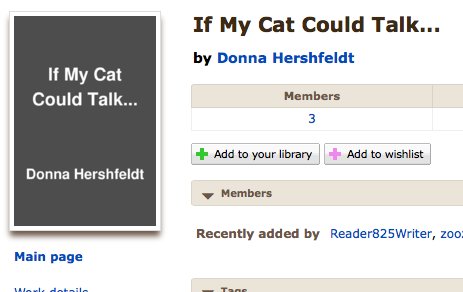 Lastly, works without covers are now showing the title on the fake cover. See example, example, example. Or see the image to the right.
Lastly, works without covers are now showing the title on the fake cover. See example, example, example. Or see the image to the right.



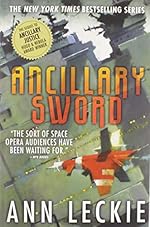
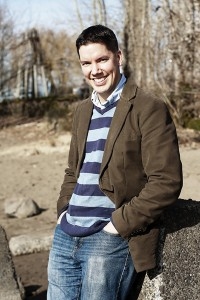
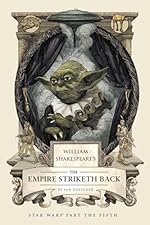






 For the
For the 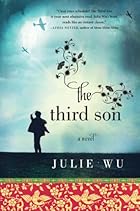

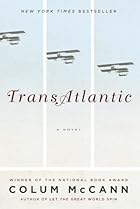

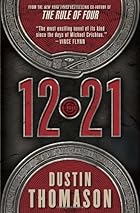











 Publishers do things country-by-country. This month we have publishers who can send books to the US, Canada, the UK, Israel, Australia, and a whole bunch of other countries. Make sure to check the flags by each book to see if it can be sent to your country.
Publishers do things country-by-country. This month we have publishers who can send books to the US, Canada, the UK, Israel, Australia, and a whole bunch of other countries. Make sure to check the flags by each book to see if it can be sent to your country.

















































































 The largest new publisher is
The largest new publisher is 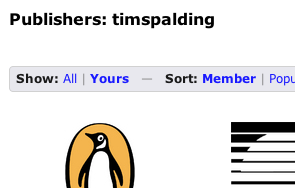

 Books You Share Preferences. Some members have long campaigned for sorting the profile-page “Books You Share” box by author, not title. But I held off—that’s not the right choice for everyone. Instead I’ve added a preference for it, with a number of different sorting options.
Books You Share Preferences. Some members have long campaigned for sorting the profile-page “Books You Share” box by author, not title. But I held off—that’s not the right choice for everyone. Instead I’ve added a preference for it, with a number of different sorting options.  Tag Combination. After a 16-month hiatus, new tag combinations and separations are back!
Tag Combination. After a 16-month hiatus, new tag combinations and separations are back! 








 John Buckman over at the book-swapping site
John Buckman over at the book-swapping site  A card sent to John in a book shipment (
A card sent to John in a book shipment (
 Two jobs—dream jobs for the right people. We may hire one person or two, depending on what we get. (We’re happy to look at resumes with a mix of talents, or other talents.) Both jobs are located in the New England area, with some potential for telecommuting.
Two jobs—dream jobs for the right people. We may hire one person or two, depending on what we get. (We’re happy to look at resumes with a mix of talents, or other talents.) Both jobs are located in the New England area, with some potential for telecommuting. LibraryThing memberships make great gifts!
LibraryThing memberships make great gifts!








